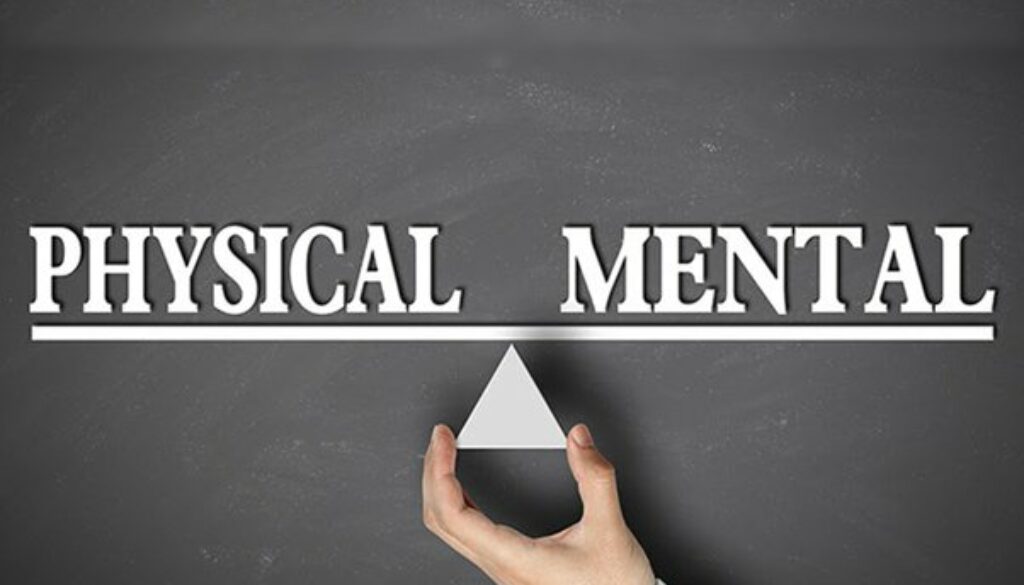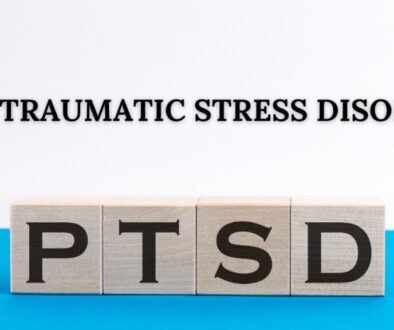The Connection Between Physical Health and Mental Well-being
In today’s fast-paced world, maintaining a healthy lifestyle is more important than ever. While physical health has long been associated with vitality and longevity, a growing body of research also highlights its profound impact on mental well-being. This article delves into the intricate connection between physical health and mental well-being, exploring how these two aspects of our lives are intertwined and influence each other.
Many people treat physical and mental health as separate entities, but the truth is that they are deeply interconnected. It is not uncommon to overlook the impact physical health has on mental well-being, as well as the effect of mental health on physical well-being. Understanding this connection is crucial for maintaining a balanced and holistic approach to overall health.
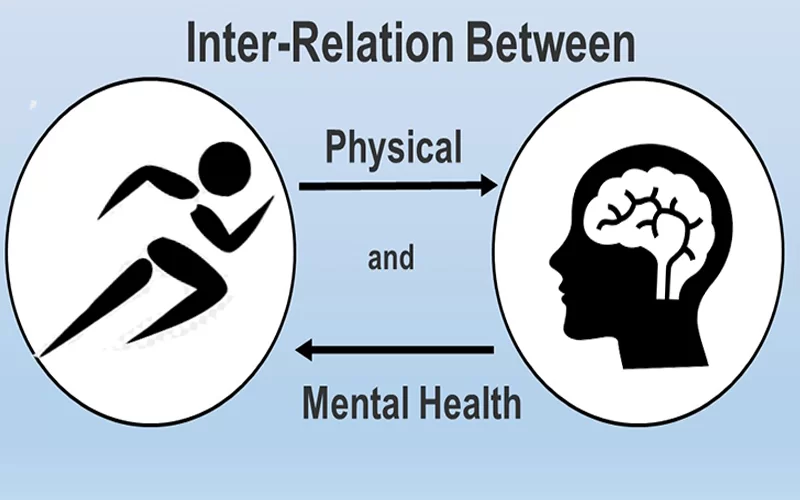
Physical Health and its Impact on Mental Well-being
Exercise and Mental Health
Regular exercise is not only essential for physical fitness but also plays a pivotal role in promoting mental well-being. Engaging in physical activities releases endorphins, neurotransmitters that help reduce feelings of stress and elevate our mood. Exercise is a natural antidepressant, known to alleviate symptoms of anxiety and depression.
Nutrition and Mental Well-being
The food we consume directly affects our physical health, but it also has a profound impact on our mental well-being. A healthy and balanced diet provides essential nutrients that support optimal brain function. Foods rich in omega-3 fatty acids, such as fatty fish and walnuts, have been shown to reduce symptoms of depression and promote mental clarity.
Sleep and Mental Health
Adequate sleep is vital for our overall well-being, both physically and mentally. During sleep, our bodies repair themselves, allowing our minds to rest and reset. Chronic sleep deprivation can result in increased stress levels, impaired cognitive function, and a heightened risk of mental health disorders.
The Mind-Body Connection
The mind and body operate as a dynamic duo, each exerting influence over the other. Stress, a common factor in modern life, can negatively impact both physical and mental health.
How Stress Affects Physical and Mental Health
When we experience stress, our bodies release stress hormones such as cortisol, which can have detrimental effects on our physical health. Prolonged exposure to stress can lead to high blood pressure, weakened immune system, and increased risk of heart disease. Moreover, the emotional toll of stress can cause anxiety, depression, and mood disorders.
The Role of Hormones in Connection
Hormones play a crucial role in the connection between physical and mental health. For example, serotonin, a neurotransmitter that regulates mood, appetite, and sleep, is heavily influenced by both exercise and nutrition. Imbalances in hormone levels can significantly impact mental well-being and overall health.
The Impact of Mental Health on Physical Health
Just as physical health affects mental well-being, mental health also influences physical well-being. The connection between the two can be observed in various ways.
The Influence of Stress on Physical Well-being
Continual stress can strain the body and lead to various physical ailments. Chronic stress weakens the immune system, leaving individuals more susceptible to illnesses such as the common cold or even more severe conditions. Moreover, stress can cause headaches, muscle tension, and gastrointestinal issues.
How Mental Disorders Affect Physical Health
Mental disorders such as depression and anxiety can manifest physically. Persistent sadness or anxiety can lead to decreased appetite, weight fluctuations, and disrupted sleep patterns. These physical symptoms can further worsen mental health, creating a vicious cycle.
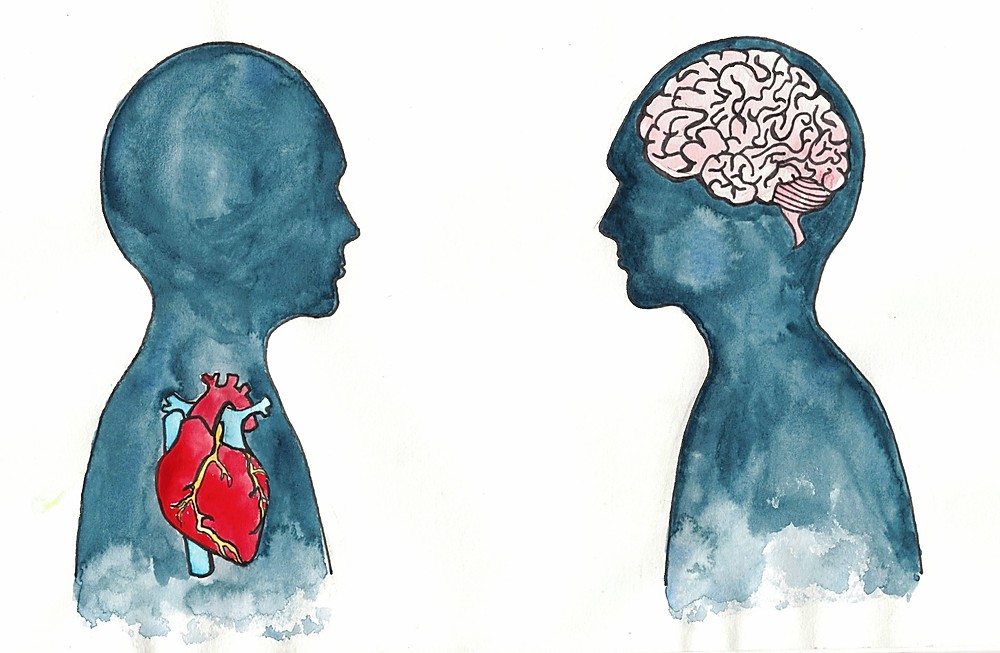
Strategies for Improving Physical Health and Mental Well-being
To optimize well-being, attention must be given to both physical health and mental well-being. Here are some strategies that can help achieve a harmonious balance:
Exercise and its Positive Effects
Regular physical activity, such as walking, cycling, or strength training, not only enhances physical fitness but also boosts mental well-being. Engaging in exercise promotes the release of endorphins, reduces stress hormones, and improves overall mood and self-esteem.
Healthy Eating Habits
Adopting a balanced and nutritious diet is essential for both physical and mental health. Consuming a variety of fruits, vegetables, whole grains, lean proteins, and healthy fats provides the necessary nutrients for brain function, mood regulation, and overall well-being.
Prioritizing Sleep
A good night’s sleep is crucial for optimal physical and mental functioning. Establishing a regular sleep routine and creating a relaxing sleep environment can greatly improve sleep quality. Avoiding screens and stimulating activities before bedtime can also aid in achieving restful sleep.
Stress Management Techniques
Implementing stress management techniques such as mindfulness, meditation, or journaling can effectively reduce stress levels and improve mental well-being. Managing stress supports physical health, promotes relaxation, and enhances overall quality of life.
Promoting Holistic Health
When it comes to our well-being, it is important to take a holistic approach. Holistic health recognizes the interconnectedness of our physical, mental, emotional, and spiritual aspects. By addressing all of these elements, we can achieve a greater sense of overall well-being. Here are some key ways to promote holistic health:
- Mindfulness and Meditation: Practicing mindfulness and meditation allows us to connect with our inner selves, cultivate self-awareness, and reduce stress levels. These practices help us become more present and attuned to our physical sensations, thoughts, and emotions.
- Emotional Well-being: Taking care of our emotional health is crucial for holistic well-being. It involves acknowledging and expressing our emotions in healthy ways, seeking support from loved ones or mental health professionals when needed, and practicing self-compassion and self-care.
- Spiritual Nourishment: Nurturing our spiritual side can bring a sense of purpose, meaning, and connection to something greater than ourselves. This can be achieved through practices like prayer, meditation, spending time in nature, or engaging in activities that align with our values and beliefs.
- Social Connections: Building and maintaining positive relationships with others contributes to our overall well-being. Connecting with supportive friends, family, or community members helps reduce feelings of isolation and loneliness, enhances our sense of belonging, and provides emotional support.
- Self-Care: Prioritizing self-care is essential for maintaining balance and preventing burnout. This includes engaging in activities that bring joy, relaxation, and rejuvenation, such as hobbies, exercise, reading, or spending quality time with loved ones.
- Work-Life Balance: Striving for a healthy work-life balance is crucial for holistic health. It involves setting boundaries, managing time effectively, and ensuring we have dedicated time for rest, hobbies, and relationships outside of work.
- Environmental Well-being: Our physical environment can greatly impact our well-being. Creating a clean, organized, and peaceful living space can contribute to a sense of calm and promote relaxation. Spending time in nature, whether through walks, hikes, or gardening, also nurtures our connection to the natural world.
- Seeking Professional Help: When facing challenges or experiencing difficulties, it is important to seek professional help when needed. Mental health professionals, such as therapists or counselors, can provide guidance, support, and necessary interventions to promote holistic well-being.
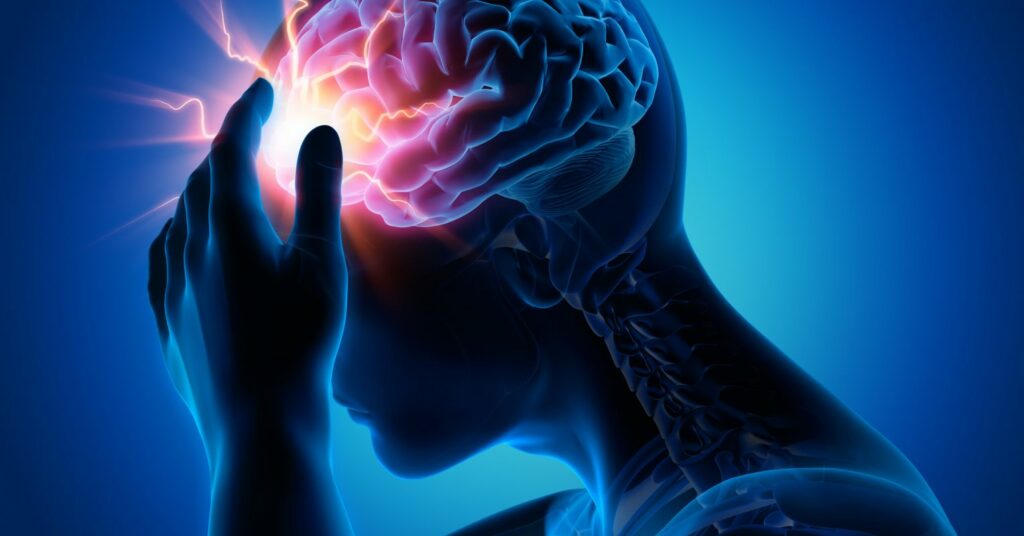
By integrating these practices and principles into our lives, we can promote holistic health, finding balance, harmony, and a greater sense of well-being. Remember, taking care of our physical health is vital, but it is equally important to nurture our mental, emotional, and spiritual health for a truly holistic approach to well-being.
Conclusion: Connection Between Physical Health and Mental Well-being
The connection between physical health and mental well-being is undeniable, showcasing the profound interdependence between our body and mind. By recognizing and nurturing this intricate relationship, we unlock the key to leading a balanced and fulfilled life. Embrace the journey towards holistic well-being, integrating regular exercise, nourishing your body and mind, and prioritizing quality sleep into your daily life. Remember, when our body and mind thrive together, we unlock our true potential for happiness and success.
Also Read:
The Ultimate Guide to Glowing Skin: Tips and Tricks
